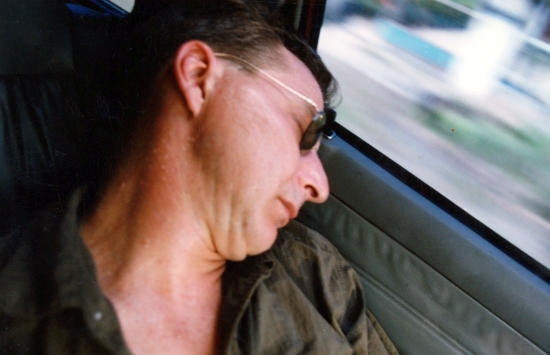Robin - Two Years Later
It was two years ago that I lost my dear friend and partner in filmmaking Robin Romano.
Robin thrills the crowd in Kenya
Much has happened in those two years that Robin would have appreciated. Children's human rights took center stage with the election of Kailash Satyarthi and Malala as last year's Nobel Peace Laureates. Ending all child labor and human traffickinghave become part of the United Nation's Sustainable Development Goals, adopted by 193 countries, setting the direction for the world's humanitarian efforts to 2030.
The organizations in the Child Labor Coalition, the colleagues Robin worked for and with, have continued their efforts to protect children in America's fields, advise our government on regulations and budget priorities and raise the alarm when our children, at home and around the world, are at risk. Robin would have approved of all this and probably doubled his own workload to advance the cause. He wasn't much for sleep and ease. He never had enough hours in a day to get to what was on his mind and in his heart.
But, two years on, too much still remains undone. Four hundred million children live in extreme poverty today. Half of the world's children are hungry, malnourished or stunted. Six million children die each year from preventable causes, diseases we have cures for. Sixty million children have never set foot in school. The anger that drove Robin to dozens of countries to bear witness still needs to drive us forward.
The U.N. agencies attempting to address these needs are working with less than half the funds they need. Refugee children go without food. Our Congress cuts the food stamp program at a time when 14.7 million American children depend on it. Our country is the only nation on earth that has yet to ratify the Convention on the Rights of the Child, a blueprint for the world's children, a guarantee of their basic human rights, a document that defines the world I want my own children to inherit.
The politics of money has come to define it all. We're told we can't afford to feed or educate poor children, we're told we can't protect them from pesticide exposure, or offer amnesty to Dreamers who were born in this country and have lived and worked in our communities. We allow pharmaceutical companies to make outrageous profits from the illness of powerless children. We let speculators raise the costs of basic commodities only to turn a quick profit. We see companies whose supply chains and business models are built on the economic exploitation of poor families in the remote parts of the world. All in the name of greed.
Compassion and empathy are sorely lacking in our politics. In the Presidential campaigns and especially on the Hill, children's human rights have been shunted to the side in public discourse. Our political candidates would rather run campaigns built around their own personalities, threatening the use of force abroad, proposing cuts to critical social programs at home . . . leaving millions of Americans behind, especially children. In a dozen hours of debate by candidates of both parties, the word “children” has rarely been spoken.
It's easy to be indifferent, as long as the child that's suffering isn't your own.
Robin worked against these interests and attitudes for thirty years. His photographic legacy is now secured at the Dodd Center for Human Rights at the University of Connecticut. But in a special arrangement with the archive, it is a living collection that organizations and students can use and it continues to remind us every day of the beauty and resilience of children and the beauty and vision of his work.
I miss you Robin. It's that simple. But we'll continue our best efforts to build the world you imagined for all children. That's the best possible legacy for a friend gone missing but not forgotten.



